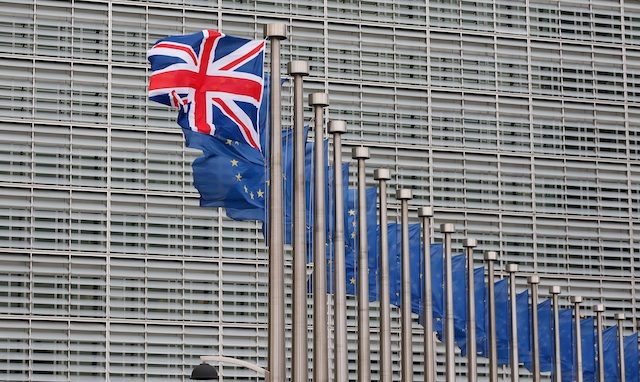SUMMARY
This is AI generated summarization, which may have errors. For context, always refer to the full article.

WARSAW, Poland (UPDATED) – British Prime Minister David Cameron on Friday, February 5, appeared to have come a step closer to sealing a contentious EU-wide deal on reforms to prevent a “Brexit,” as a key Polish leader said he was “very pleased” with the outcome of bilateral talks.
Poland’s influential governing party leader Jaroslaw Kaczynski said “we’ve gained a great deal” after talks with Cameron tackling a controversial proposal to curb benefits to European Union migrants in Britain.
Kaczynski told reporters that Poles living in Britain will enjoy “full protection” of their rights to benefits, including a controversial “allowance for children living in Poland.”
He is widely seen as the real deal-maker in Prime Minister Beata Szydlo’s right-wing populist Law and Justice (PiS) government that took office after winning an unprecedented majority in October’s election.
Kaczynski also hailed Britain’s “readiness for wide-ranging cooperation on security.”
Rattled by Russia’s 2014 annexation of Ukraine’s Crimean peninsula, Warsaw is lobbying NATO allies like Britain to boost troop numbers along the alliance’s vulnerable eastern flank at a July summit in the Polish capital.
Cameron on Friday launched two weeks of high-stakes diplomacy aimed at reaching a deal to avert a “Brexit.”
He must convince his fellow 27 European Union leaders to back controversial reform proposals at a leaders’ summit in Brussels on February 18-19.
The risks were underlined Friday by a new poll showing 45% of Britons now want to leave the EU – up three percentage points from a week earlier – with only 36% who want Britain to remain in the 28-member club.
Ahead of talks with Cameron in Warsaw, Szydlo told Britain’s The Times that the benefits proposal “doesn’t make me happy”.
Her tone mellowed at a press conference with the British leader who stressed their countries’ “shared interests” and “strategic partnership,” in both the EU and NATO.
But while saying it was “very important” to Poland for Britain to stay in the EU, she added: “There are always topics that need to be ironed out.”
“Over a million Poles live and work in Britain. Their work is growing Britain’s GDP and we want them to enjoy the same kind of opportunities for development as Britons,” Szydlo said.
Sources close to the negotiations told Agence France-Presse on Thursday that so far no European leaders are satisfied with a draft agreement for a deal to avoid a “Brexit.”
The so-called Visegrad Four – the central European states of Poland, the Czech Republic, Hungary and Slovakia – say they will not accept any plan that discriminates against hundreds of thousands of their citizens working in Britain.
Central Europeans have flocked to Britain in search of jobs and a better life since their poorer ex-communist countries joined the EU in 2004.
While many are gainfully employed, the influx has nonetheless prompted criticism that the migrants are draining Britain’s generous welfare system.
‘Red card system’
A draft agreement unveiled on Monday by EU president Donald Tusk – a former Polish premier – includes a four-year “emergency brake” limiting welfare payments to migrants, as well as a “red card” system for national parliaments to overrule draft EU laws.
Initial reactions from European capitals show that “nobody’s happy” with it, one European source said on Thursday.
If Cameron gets an agreement by the EU summit, he will campaign for Britain to remain in the EU in an in-out referendum that is likely to be held in June.
He was to follow-up his talks in Warsaw with a stop in Denmark later Friday.
European diplomats in Brussels are set to hold their first full talks on the new proposals on Friday, and will meet again next Thursday in a bid to iron out their differences.
Cameron has been in frequent contact with French President Francois Hollande, who warned Wednesday that there should be no more changes to the deal at the summit itself, and has expressed concern over Tusk’s proposals for protections for non-eurozone countries. – Mary Sibierski, AFP/Rappler.com
Add a comment
How does this make you feel?
There are no comments yet. Add your comment to start the conversation.